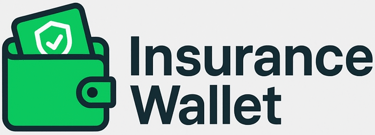Commercial Vehicle Insurance Coverage: What Every Agent Must Know
Commercial vehicles—trucks, buses, taxis, delivery vans, and auto-rickshaws—are the lifeline of trade and transport in India. Since they operate extensively and carry goods or passengers, their risk exposure is far higher than private vehicles.
For insurance professionals, understanding Commercial Vehicle Insurance coverage is key to advising clients and closing deals effectively.
🚚 What is Commercial Vehicle Insurance?
It is a policy designed to protect businesses and vehicle owners against:
Own Damage (OD): Financial loss to the insured vehicle.
Third-Party Liabilities: Legal liabilities for death, injury, or property damage to third parties.
Passenger/Employee Cover: Legal liability towards drivers, conductors, cleaners, and passengers as per MV Act .
👉 It’s not just a legal requirement—it’s essential risk protection for business operations.
📦 Types of Commercial Vehicle Insurance
Liability-Only Policy
Compulsory under the Motor Vehicles Act, 1988.
Covers:
Death or injury to third parties.
Damage to third-party property (up to ₹7.5 lakh limit) .
Covers paid drivers, conductors, and loaders under the Employees’ Compensation Act.
Comprehensive (Package) Policy
Includes all liability-only benefits.
Covers own damage caused by:
Accidents, fire, explosion, theft.
Riots, strikes, terrorism.
Natural calamities like floods, earthquakes, cyclones, landslides.
Damage while in transit by road, rail, inland waterways, or air .
Extended cover for trailers and towed vehicles, subject to limits.
🔑 Key Features of Coverage
Unlimited Liability for Third-Party Death/Injury – As per MV Act.
Third-Party Property Damage – Limited to ₹7.5 lakh (higher cover available at extra premium).
Passenger Risk Cover – Legal liability towards passengers in public service vehicles.
Towing Extension – Coverage while towing another vehicle, but not goods in the towed vehicle .
Driver Clause – Only persons with valid licenses are covered .
Add-On Covers – PA for owner-driver, PA for employees, accessories cover, legal liability for non-fare paying passengers.
❌ Common Exclusions
Use of vehicle for hire/reward without permit.
Use in speed testing, racing, or reliability trials.
Damage due to war, nuclear risks, or intoxicated driving .
Loss of goods carried in towed trailers.
💡 Sales Tips for Agents
Highlight Legal Mandate – Every commercial vehicle must have liability cover; this is the strongest sales angle.
Promote Comprehensive Policies – Businesses want to avoid downtime; OD cover ensures quick repairs and reduced losses.
Use Real-Life Scenarios – Example: “If your goods truck meets with an accident, can you afford lakhs in repair + third-party claims?”
Upsell Add-Ons – PA covers and employee protection create value for fleet owners.
Stress Compliance – Non-compliance can lead to fines, imprisonment, and business disruptions.
✅ Conclusion
Commercial Vehicle Insurance is more than compliance—it’s business continuity protection. It safeguards the vehicle, the business, and third parties in case of accidents. For agents, understanding its coverage and exclusions is the foundation for building trust with fleet owners, transport operators, and taxi owners.
